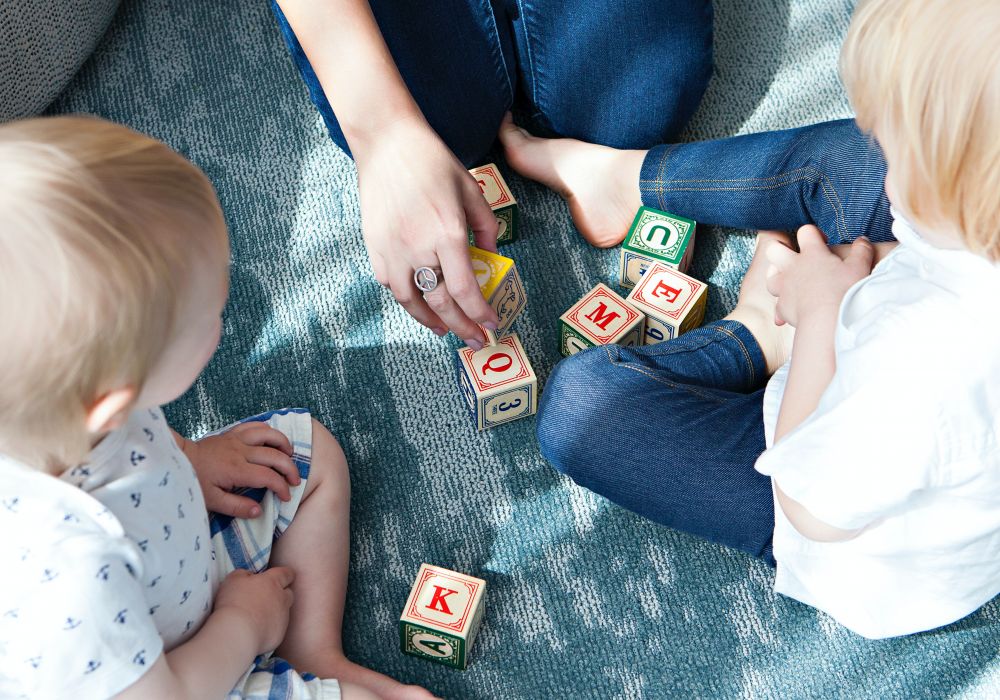October 20, 2022
October 20, 2022
7 Benefits Of Learning A Second Language & How Flashcards Can Help
Are you thinking of learning another language? Or perhaps you’re curious about the ways that speaking an additional language can affect your brain? We often hear that acquiring another language can be a positive thing for your mind, but why (and how) is this the case?
In this blog, we will discuss the proven ways in which language acquisition can positively affect the way you (or your child) use your brain. We will also cover the other benefits of learning a second language – which are broad and wide-reaching!
Of course, while on the topic of language learning, we couldn’t help but include information on language learning methods. Some of the most popular and useful tools when it comes to learning another language are easy to access and simple.
Flashcards are one of these tools! Language learning flashcards can be an incredible help for those who are embarking on the process of learning a new language. They’re also an amazing aid in early education, for those who wish to teach their children another language while they are still young. In the second part of this piece, we will explain how flashcards can help with learning a second language.

Image by Marisa Howenstine on Unsplash: Why learn another language?
What Are The Benefits Of Learning A Second Language?
First of all, let’s talk about the effects of second language acquisition. Many studies have been done on the topic of learning a second language, and these have shown that typically language learning has a variety of positive outcomes. There are so many benefits that come with learning another language, but this list below includes 6 of our favorite points:
1. Learning A Second Language Can Increase Your Brain Power
Learning a second language can improve your critical thinking and problem solving skills. When you learn a new language, you stimulate your brain to the extent that it creates new gray matter, and your brain actually grows! As you process a whole new set of language skills (including new vocabulary, different sentence structures and pronunciations), your brain is working extra hard to get to grips with a new mode of communication.
This can increase the overall effectiveness of your mind – meaning you may perform better at other tasks too. In fact, language learning has been linked with slower cognitive decline, as maintaining a healthy brain is one of the key factors of seamless aging. And, you may find it easier to learn an additional language! For a more scientific explanation of these processes, check out this post.
2. Your Memory May Improve
Many studies have been done on the link between memory and language acquisition, showing a positive relationship between the two. For example, a 2020 study on the impact of second- and third-language learning found that your working memory increases when you learn new languages.
This study shows that the opposite is also true – as your memory improves, so too does your language-learning ability! Of course, an improved memory is a huge benefit in almost every area of life. Learning new definitions and an entirely new lexicon is doubtlessly going to improve your ability to recall important information quickly and in greater detail, and this is just one benefit of language learning.

Image by Nathan Dumlao on Unsplash: Why are flashcards used in language learning?
3. You May Find It Easier To Multi-Task
Often, those who speak another language find it easier to multi-task, as they’re used to switching between different languages in their head. This can translate into their performance of daily tasks. Think about it: your brain gets used to quickly processing different ways of speaking and a whole new vocabulary when you learn a new language! Bilingual people often find that they don’t even need to think about which language they are speaking when they reach a certain fluency. Translating this important skill into daily life can lead to a greater ability to do several tasks at once, and improve concentration and focus.
4. Career Development
While English is probably one of the most useful and common languages to speak when it comes to your professional life, having an additional language can bring a range of benefits. Many jobs require the use of more than one working language, particularly in international companies or in positions linked to the tourism industry. Even if you do not need to use your second language on a regular basis at work, showing that you can speak something other than English can help to spice up your resume a little.

Image by Robert Collins on Unsplash: Flashcards combine learning with play
5. A Whole New Way To Travel
While many destinations offer the possibility to speak English at least to some level, knowing the local language (even just the basics) can really change the way you experience a place. Not only will people often admire and appreciate the efforts you’ve made in communicating in the local tongue, but you may pick up on important secrets and insider knowledge which may not have been accessible without knowing the language. Of course, it can also be comforting to be able to understand what is happening around you to some extent when traveling, for practical reasons.
6. Connect With Others
This extends far beyond increased comfort while traveling. Perhaps, while learning another language, you may meet a new friend or even a partner. You may even find that you befriend a whole new community that you hadn’t been able to speak to before, as you overcome any language barriers!
With the world becoming more and more globalized, knowledge of a second language can be helpful when it comes to communicating with those around you who don’t speak English well. It can also be an interesting way to truly understand different cultures, on a deeper level.
And not only that – you may gain an increased appreciation and understanding of your native language, and the ways in which you already communicate. You may even find that your overall communication improves as you embark on your language-learning journey.
7. Increase Your Confidence
We have already mentioned that learning a second language can improve your ability to communicate, and a knock-on effect of this is increased confidence in the way you speak to others. You may find that your self-esteem increases as you become more comfortable engaging with others through another language, or when you finally conquer your understanding of that tricky grammatical tense. Or maybe, when you watch your first movie in a foreign language without subtitles!
How Flashcards Can Help With Learning A Second Language
Now that we’ve discussed the benefits of learning a second language, we are going to talk about one very useful method of doing so. Are flashcards useful for language learning? Absolutely!

Image by Senjuti Kundu on Unsplash: How do you make flashcards to learn a language?
Why Are Flashcards Used In Language Learning?
Flashcards can be a great way to teach your child another language, as they combine elements of fun and play with learning new skills. With bright colors and playful images, your child is sure to enjoy their introduction to another language.
Using flash cards can greatly improve your child’s ability to communicate, and can increase their focus and attention span. Children like stimulation, and using flashcards can enable them to use visual aids to process information.
Very often, children find it easier to recall information when it is visually appealing and striking, and this can improve their memory. Gone are the days of writing lines and memorizing difficult rules – with flashcards, your children can enjoy learning another language in a more dynamic and engaging way.
Can You Learn Spanish With Flashcards?
Exposing your child to a language in the early stages of development can certainly help in their acquisition of that language, and Spanish is no exception. Our Spanish Flash Cards are an incredible tool for helping your child to learn Spanish. By exposing your child to a second language while they are young, they can reap the rewards of speaking an additional language (discussed above) as they get older. Children learn languages much more easily than adults, so get your child started today with our beautifully-designed Spanish flashcards!
We have some of the best flashcards for language learning. Our Spanish Flash Cards Value Pack contains 144 cards which combine math, language, shapes, colors and the alphabet for a fun introduction to Spanish. With gorgeous illustrations printed on thick and durable cards, they can withstand even the most active child’s lifestyle.
Benefits Of Learning A Language And Language Learning Flashcards
Now that you understand the plethora of benefits that come with learning and speaking another language, we’re sure that you can see the value of teaching your child a second language while they are still young! Not only will they benefit from improved brain function and memory, but their future career opportunities and ability to connect with others will likely improve.
Language learning flashcards can be a very useful way to make language learning fun for young children – why not consider teaching your child Spanish with our flashcards today?
Featured image by Piron Guillaume on Unsplas
